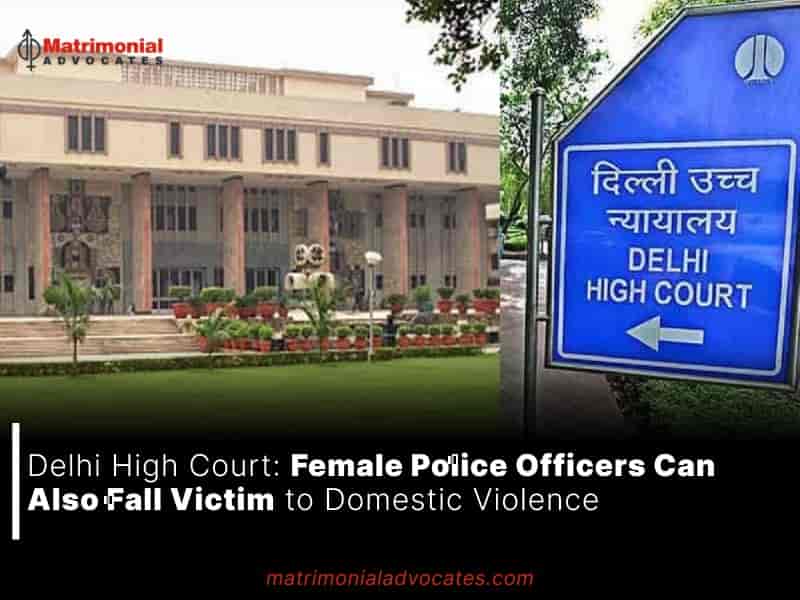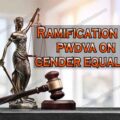
The Court said that to make assumptions that a woman, by virtue of her profession as a police officer, cannot possibly be a victim in her own personal or matrimonial life, is a form of injustice.
The Delhi High Court recently emphasized that domestic violence can affect anyone, including police officers, and urged courts to avoid gender biases or stereotypes associated with specific professions, as noted in the case Sanghmitra v State.
This assertion came as the High Court overturned a sessions court’s decision to dismiss a man from a case involving allegations of cruelty towards his wife.
The sessions court had dropped charges under Sections 498A (cruelty) and 34 (act done with common intention) of the Indian Penal Code (IPC), citing the professions of both the accused husband and the complainant wife, who were both police officers.
However, Justice Swarana Kanta Sharma of the High Court stressed that judicial decisions regarding criminal charges should not be influenced by gender or professional stereotypes.
The High Court warned against assuming that individuals in certain professions always conform to public perceptions, stating that such assumptions are unjust and biased.
The court emphasized that it would be unfair to presume that someone employed as a police officer could never experience domestic violence.
“Moreover, the present case also presents a contradictory view where both the husband and the wife are working on equal status/ post in Delhi Police, however, the position of the wife as police officer has been held against her observing that since she is a Police officer, she cannot be intimidated, harassed, dowry cannot be demanded from her, she cannot be tolerant in order to save her marriage, totally ignoring her specific allegation and submission that she had kept on waiting and hoping her return to her matrimonial home and saving her marriage. Conversely, it has been held that since the accused husband is in Police, he will not intimidate his wife,” the Bench added.
Justice Sharma also addressed the issue of “implicit biases,” highlighting the critical need to maintain “gender neutrality in judicial decision-making.”
“The present case of a female police officer, deemed incapable of being victimized, solely due to her profession is an illustration of the insidious nature of our hidden biases. To harbor assumptions, especially as a judge, that a woman, by virtue of her profession as a police officer, cannot possibly be a victim in her own personal or matrimonial life, is a form of injustice of its own kind and one of the highest kinds of perversity which can be seen in a judgment. Judicial decisions, premised on such assumptions, are examples of court’s refusal to recognize the complex realities of people’s lives, and defiance of law, logic and empathy,” the Court said.
The High Court was handling a case of marital cruelty in which a magistrate had initially pressed charges against the accused police officer and his relatives. However, a sessions court later annulled the magistrate’s decision and released the accused.
Subsequently, the woman (complainant) appealed the sessions court’s ruling before the High Court.
The High Court observed that the sessions court’s decision to discharge the accused was primarily influenced by the fact that the complainant was a police officer, leading to the belief that the alleged offense could not have been committed against her.
Justice Sharma criticized the sessions court for adopting such a perspective, expressing disappointment that it failed to address the specific instances of dowry demands and mistreatment reported by the complainant.
Furthermore, the Court emphasized the importance of recognizing the distinctive dynamics of cases involving domestic violence or cruelty, especially when the victim is a woman in a position of authority.
“To dismiss the sufferings of women in positions of authority as mere fabrication or deceit would be grave injustice to victims of domestic violence, and holding so would also be equal to holding that no woman who is either a police officer or an officer of administrative services or even a judicial officer or any other woman considered empowered by societal norms or in a position of authority or dominance will ever be considered as a victim. Therefore, a court of law cannot make sweeping generalizations about the credibility of the allegations levelled in a complaint on the basis of the gender of the victims and their professional stature,” the High Court said.
The High Court also emphasized the necessity of incorporating gender sensitivity into judicial education.
“Given the complexity of contemporary legal disputes, particularly in matters where there may not be only two genders but more in view of different sexual orientations and preferences, the judicial academies, which carry the most important burden of training their own protégés, must include in their curriculum the chapters addressing the perils of unrecognized gender and other biases which get reflected in the judgments.”
Therefore, the Court urged the Delhi Judicial Academy to include topics such as gender equality and cultural diversity in its curriculum and ongoing judicial education initiatives.





